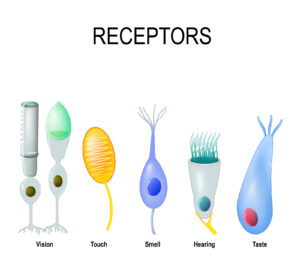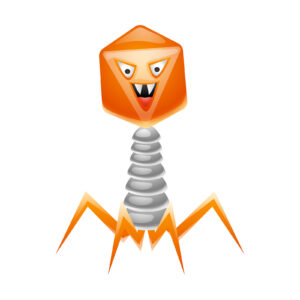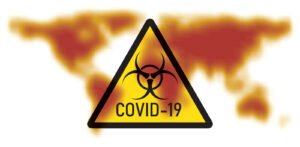Recently, a new symptom of COVID-19 has been identified in young adults who are otherwise asymptomatic and have no other health issues. This new symptom presents itself as a sudden loss of sense of smell (Anosmia), a reduced sense of smell (Hyposmia), or a sudden loss of taste (Ageusia).
Loss of smell is a unique and novel symptom because Anosmia is manifesting only in patients who are positive for the virus but otherwise healthy and are less than 40 years of age. In contrast, previously described coronaviruses have shown the occurrence of loss of sense of smell only in symptomatic patients (15-20%).

Usually, the loss of smell or taste occurs following a common cold or a similar virus. This is called post-viral Anosmia or Hyposmia. Moreover, the post-viral olfactory loss doesn’t manifest itself suddenly. Rather the loss of sense of smell develops gradually over time.
Did we stumble upon the carriers of COVID-19?
A significantly high occurrence of loss of sense of smell was noted among the front-line health workers, who were otherwise asymptomatic and healthy. This observation suggested that our first line of defense (front-line health workers) was infected with COVID-19 and were still actively performing their patient duties.
Therefore, unknowingly they were aiding in the spread of the SARS-CoV-2 to anyone they came in contact with especially their colleagues, doctors, patients, and hospital staff. This was a disaster because we cannot risk our healthcare force to fall victim to the virus. It’s imperative to keep them safe and healthy for them to save lives.
Are carriers the reason for the rapid spread of the virus?

Identification of a large number of asymptomatic yet infected patients helped identify a subset of the younger healthy population, where the only symptom was a sudden loss of sense of smell. These patients were up to 40 years of age and displayed mild to absolutely no symptoms of the viral infection.
This means they are carriers of the novel coronavirus-19 and facilitated the rapid spread of the virus. Since the sudden loss of sense of smell is not on the symptom list of CDC and WHO, there were no protocols in place for self-isolation and testing. This could explain the aggressiveness and rapid transmission of the virus all over the world in a short time of three months.
What does a ‘carrier’ of disease mean?
A carrier is a person that is infected from a particular bacteria or virus (a pathogen) but does not present any symptoms and appears healthy. However, this person or carrier is fully capable of transmitting the disease without anybody’s knowledge. This was the case of “Typhoid Mary in 1909.”
Knowing that there could be carriers of COVID-19 is both good and bad news
Why is it good news?
Since COVID-19 is so new and rapidly became pandemic, there is little to no information on virus-reservoir, its transmittance, disease progression, and epidemiology. Consequently, the recent knowledge of the loss of sense of smell in the carriers of this virus gives us the advantage to devise strategies to hopefully curb the further spread of COVID-19 (SARS-CoV-2).
Besides, these carriers can now be monitored and quarantined appropriately preventing further spread of the novel coronavirus. Further, there is a possibility that anosmia can be used as a marker for identifying COVID-19 infection.
Why is it bad news?
Since COVID-19 has already become pandemic and the carriers are spread all over the world, it would be hard to further control the spread of this virus using the existing information. Rigorous methods if any would be needed to identify the carriers and quarantine them. This especially requires the cooperation of each individual all over the world to be responsible to quarantine themselves if they experience symptoms of anosmia.
The estimated incubation period of this virus has been estimated to be 1 to 14 days with a median of 5-6 days. In contrast, recent clinical reports show that the incubation period for the novel coronavirus might be as long as 24 days which is much longer than the 14 days that WHO and CDC have been using for quarantine policies in case of symptomatic patients. For the asymptomatic patients, WHO and CDC are recommending a quarantine of 7 days in addition to the usual 14 days. This is still not long enough to be useful in preventing the spread of COVID-19 from the carriers.
Raising awareness towards the new major symptom (anosmia) in COVID-19
A few days ago, the president of a group called ENT UK that represents Ear, Nose and throat doctors in Britain have issued an urgent statement to raise awareness regarding anosmia as a major symptom of COVID-19. CDC has added anosmia and dysgeusia (taste disorder) to the list of “significant symptoms” of the virus.
Unanimously, a request has been made to the adults around the world to take the loss or reduced sense of smell and taste seriously even if they don’t have any other previously identified symptoms of the virus. These people should self isolate and the doctors should screen them for the presence of the virus. Doing so would aid in slowing down the spread of the virus thus saving lives.
Lastly, as a scientist, I am sure we can defeat this invisible enemy provided we are united as one; by following good science and by being transparent about all the data, observations, treatment plans so that no effort is wasted going against each other. Everyone should follow the no contact orders to the tee. This is the only way to defeat a vicious virus against whom we have no defenses.
Ignorance or Arrogance
It makes me very sad to think of all those lives lost because of the virus. Yet how many more are unpreventable at this point. I look back to a month ago when the epidemic in China was declared a pandemic. It seems no one took the threat seriously, almost no protocols were laid out to not let this invisible covert enemy enter our country. It seems people, in their ignorance (i.e. following misinformation and going against science), have played a big role in the spread of the virus.
A common sentiment I found in people was their thought that somehow Americans are immune to viruses. Not knowing the first thing about a viral disease or the novel Coronavirus, everyone went around as if COVID-19 is afraid of them. This reminds me of anti-vaxxers telling me how “measles don’t kill in America.” Now we know everyone is vulnerable in front of diseases, especially a virus we know nothing about. Therefore, let’s follow the advice of good science and bring lives back to normal.
This article is a global appeal from The Scrutinizer :

- to understand the seriousness of the pandemic of Coronavirus-19
- right now we have no defenses against the Coronavirus-19 other than isolation and no contact
- to diligently follow the new guidelines if anyone experiences the loss of sense of smell or taste, especially in the absence of any other symptoms
- to self isolate immediately because this means you are positive for the coronavirus-19 and can infect other people even though you remain healthy for now
- to NOT indulge in any kind of bizarre challenges that places the entire world at risk of contracting the disease
- follow the facts, not opinions or beliefs that lead to misinformation and disasters like the COVID-19
- and finally, learn from this experience and not repeat the history intentionally